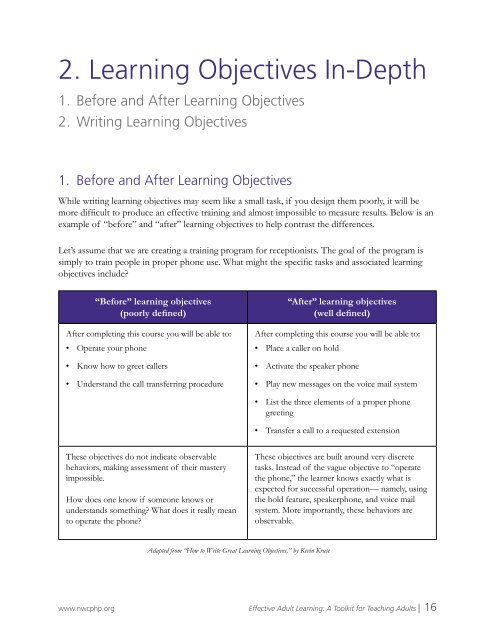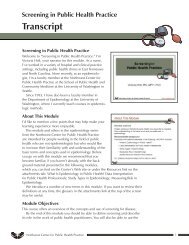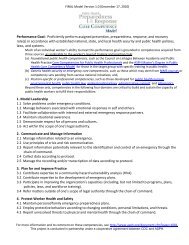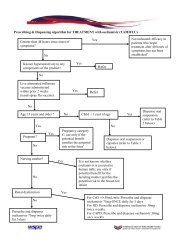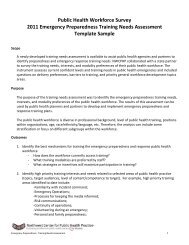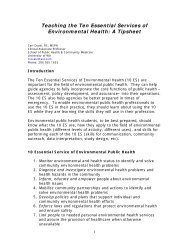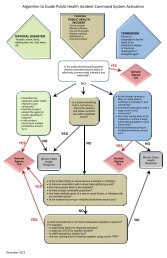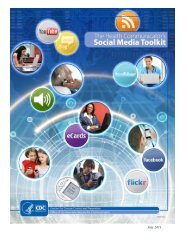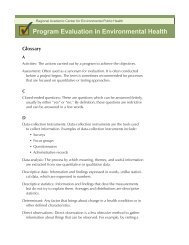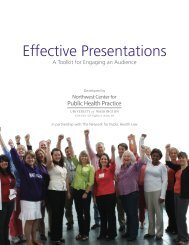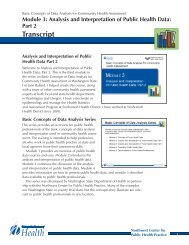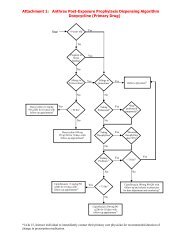Effective Adult Learning - Northwest Center for Public Health Practice
Effective Adult Learning - Northwest Center for Public Health Practice
Effective Adult Learning - Northwest Center for Public Health Practice
Create successful ePaper yourself
Turn your PDF publications into a flip-book with our unique Google optimized e-Paper software.
2. <strong>Learning</strong> Objectives In-Depth<br />
1. Be<strong>for</strong>e and After <strong>Learning</strong> Objectives<br />
2. Writing <strong>Learning</strong> Objectives<br />
1. Be<strong>for</strong>e and After <strong>Learning</strong> Objectives<br />
While writing learning objectives may seem like a small task, if you design them poorly, it will be<br />
more difficult to produce an effective training and almost impossible to measure results. Below is an<br />
example of “be<strong>for</strong>e” and “after” learning objectives to help contrast the differences.<br />
Let’s assume that we are creating a training program <strong>for</strong> receptionists. The goal of the program is<br />
simply to train people in proper phone use. What might the specific tasks and associated learning<br />
objectives include?<br />
“Be<strong>for</strong>e” learning objectives<br />
(poorly defined)<br />
After completing this course you will be able to:<br />
• Operate your phone<br />
• Know how to greet callers<br />
• Understand the call transferring procedure<br />
“After” learning objectives<br />
(well defined)<br />
After completing this course you will be able to:<br />
• Place a caller on hold<br />
• Activate the speaker phone<br />
• Play new messages on the voice mail system<br />
• List the three elements of a proper phone<br />
greeting<br />
• Transfer a call to a requested extension<br />
These objectives do not indicate observable<br />
behaviors, making assessment of their mastery<br />
impossible.<br />
How does one know if someone knows or<br />
understands something? What does it really mean<br />
to operate the phone?<br />
These objectives are built around very discrete<br />
tasks. Instead of the vague objective to “operate<br />
the phone,” the learner knows exactly what is<br />
expected <strong>for</strong> successful operation— namely, using<br />
the hold feature, speakerphone, and voice mail<br />
system. More importantly, these behaviors are<br />
observable.<br />
Adapted from “How to Write Great <strong>Learning</strong> Objectives,” by Kevin Kruse<br />
www.nwcphp.org <strong>Effective</strong> <strong>Adult</strong> <strong>Learning</strong>: A Toolkit <strong>for</strong> Teaching <strong>Adult</strong>s | 16


